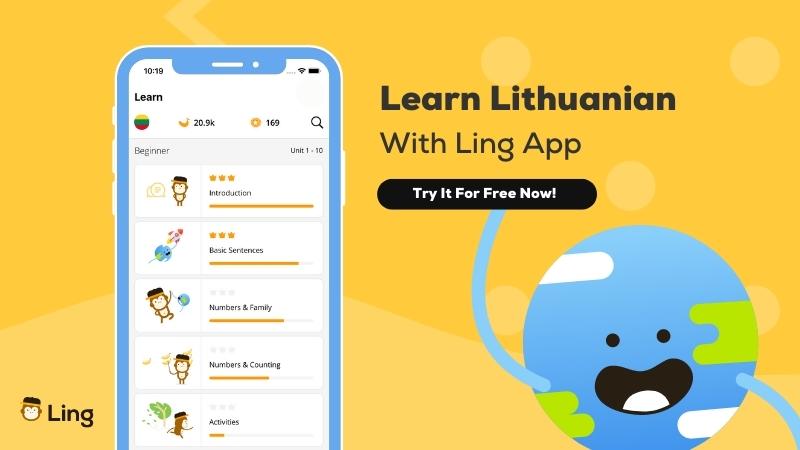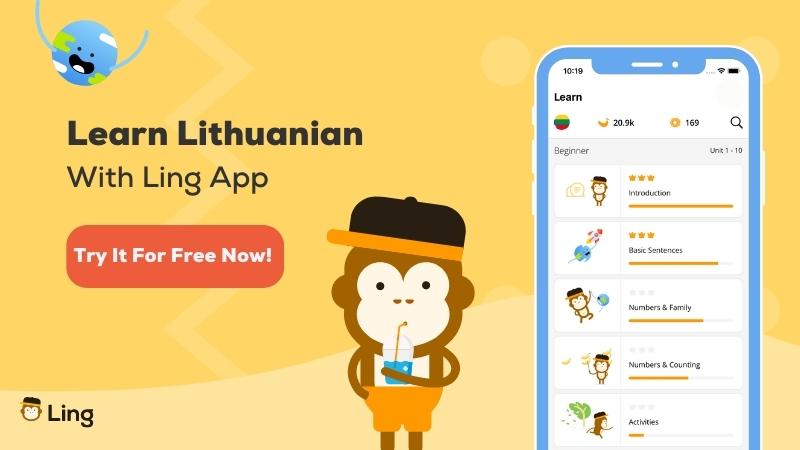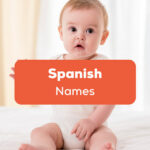If you’re planning a trip to Lithuania, learning a few words in Lithuanian may be very handy. Although you don’t need to be fluent, learning some basic words can be the help you need to be able to communicate with the local people. If you’re planning on starting on this language, why don’t you start by learning some polite words in Lithuanian and ensure you don’t say anything wrong or offensive?
Lithuanian is a beautiful and complex language with a rich and fascinating history and culture, and like many other languages, it has a variety of polite words and phrases that are used to show respect and courtesy in social interactions. These words and phrases often involve the use of different forms of address, as well as specific vocabulary that is used to express politeness and deference.
Although these words are not mandatory to be able to make a sentence, especially if you’re a tourist, being respectful and using these polite words is very important as Lithuanian people will be much more empathic, nice, and warm if you show them the respect they deserve.
In this article, we’re going to explore some important and polite words that you should have in mind to ensure you’re being polite in Lithuania.

Polite Words In Lithuanian – How To Address Someone
One of the most common ways to show respect in Lithuanian is through the use of different forms of Lithuanian greetings and addresses. For example, the standard way to address someone in Lithuanian is to use their given name, followed by the appropriate ending for their gender (e.g. -as for men, -a for women). However, when speaking to someone who is older or in a position of authority, it is customary to use the formal form of address, which involves using the person’s given name followed by the ending -ie (e.g. Jonasie, Jūratie).
Another way to address people in Lithuanian is to use the last name and the classic Mr. (pone), Miss (panele), Mrs. (ponia) before the name. Here’s an example:
Sveiki, ponia Smith.
Hello, Mrs. Smith.

Important Vocabulary To Be Polite In Lithuanian
In addition to using the appropriate form of address, there are also several specific vocabulary words and Lithuanian phrases used to express politeness. For example, the word “prašau” is commonly used to mean “please” in various contexts. This word can be used to request something from someone, to ask for permission to do something, or to show gratitude for something that has been done.
Another common way to show politeness in Lithuanian is through the use of specific vocabulary that is used to express deference or humility. For example, the word “atsiprašau” is commonly used to mean “I’m sorry” or “excuse me” in situations where someone has made a mistake or has inconvenienced someone else. This word can also be used to show humility or self-effacement, such as when asking for help or advice from someone else.
In addition to these specific words and phrases, there are also a number of more general rules of politeness that are observed in Lithuanian social interactions. For example, it is customary to greet someone by saying “Labas” (hello) when meeting them and to say “Ačiū” (thank you) when someone has done something for you. It is also important to use polite language when speaking to someone who is older or in a position of authority and to avoid interrupting or speaking over someone else in the conversation.
You should also have in mind the phrase Good morning (Labas rytas), Good afternoon /Good evening (Laba diena), and Good Night (Labos nakties) that are sentences you should use both when starting a conversation, but also when you finish the conversation and are going in separate ways.
To sum it all up, here is a list of a few Lithuanian words and phrases that you might want to learn to increase your politeness during your trip:
| Lithuanian | English |
| Sveiki… /Laba diena… | Hello… |
| Atsiprašau… | Excuse me… |
| Aš atsiprašau. | I’m sorry. |
| Atsiprašau? | I beg your pardon? |
| Ar galite pakartoti? | Can you repeat, please? |
| Ačiū! | Thank you! |
| Su jūsų leidimu. | With your permission. |
| Mano giliausias atsiprašymas. | My deepest apologies. |
| Viso gero. | Goodbye. |
| Linkiu tau sekmės. | I wish you well. |

Conversation Example In Lithuanian
Let’s have a look at a conversation where these words are being used to show politeness and respect between 2 persons:
Person 1: Laba diena, kaip jums sekasi? (Hello, how are you doing?)
Person 2: Laba diena, ačiū, man sekasi gerai. O jums? (Hello, thank you, I am doing well. And you?)
Person 1: Ačiū, man taip pat sekasi gerai. (Thank you, I am also doing well.)
Person 2: Gerai, ačiū. Gal galėtume pabendrauti šiek tiek ilgiau? (Great, thank you. Could we chat for a bit longer?)
Person 1: Tai būtų malonu. (That would be nice.)
Person 2: Na, ką veikiate šiandien? (So, what are you up to today?)
Person 1: Šiandien tiesiog buvau namie ir mėgavausi laisvalaikiu. O jūs? (Today I was just at home and enjoying my free time. And you?)
Person 2: Šiandien dirbau, bet dabar atostogauju. (I was working today, but now I am on vacation.)
Person 1: Gerai, kur jūs keliaujate atostogauti? (Good, where are you traveling for your vacation?)
Person 2: Mes keliaujame į Šiaurės Ameriką. (We are traveling to North America.)
Person 1: Tai nuostabu! Linkiu jums nuostabių atostogų! (That’s wonderful! I wish you a great vacation!)
Person 2: Ačiū, jums taip pat! (Thank you, the same to you!)
Wrapping up!
Learning these words will not allow you to completely embrace the Lithuanian language, but it will for sure ensure you’re the most respectful and polite with the local polite. I can guarantee you that these words and expressions are enough to bring you many smiles and will allow you to have the best time in Lithuania.
If you want to really mingle with the local people, then your best option is to invest to speak Lithuanian, and for that, you’re in luck, I have the perfect tool for you – Ling app!

Learn Lithuanian With Ling App
Learning a new language can open up a world of opportunities and enrich your personal and professional life. With the Ling app, you can easily and effectively learn a new language on your own time. The app offers a variety of language courses, personalized lesson plans, and interactive exercises to help you master a new language. To top it all, every lesson is reviewed by a native speaker to ensure that the information is correct and relevant.
So why wait? Download the Ling app today and start your language-learning journey. Don’t miss out on the benefits of being bilingual – start learning with Ling app now!



































































